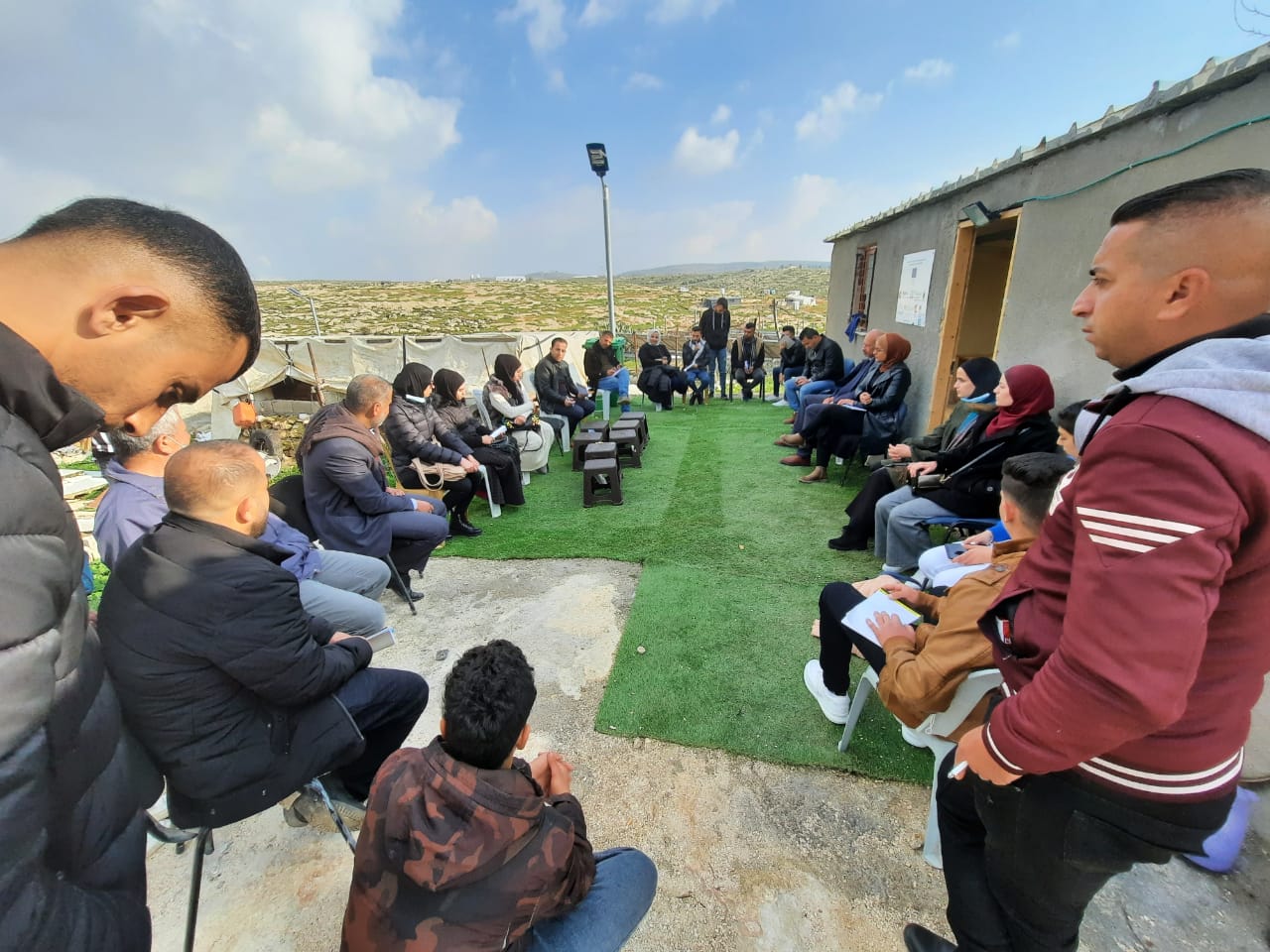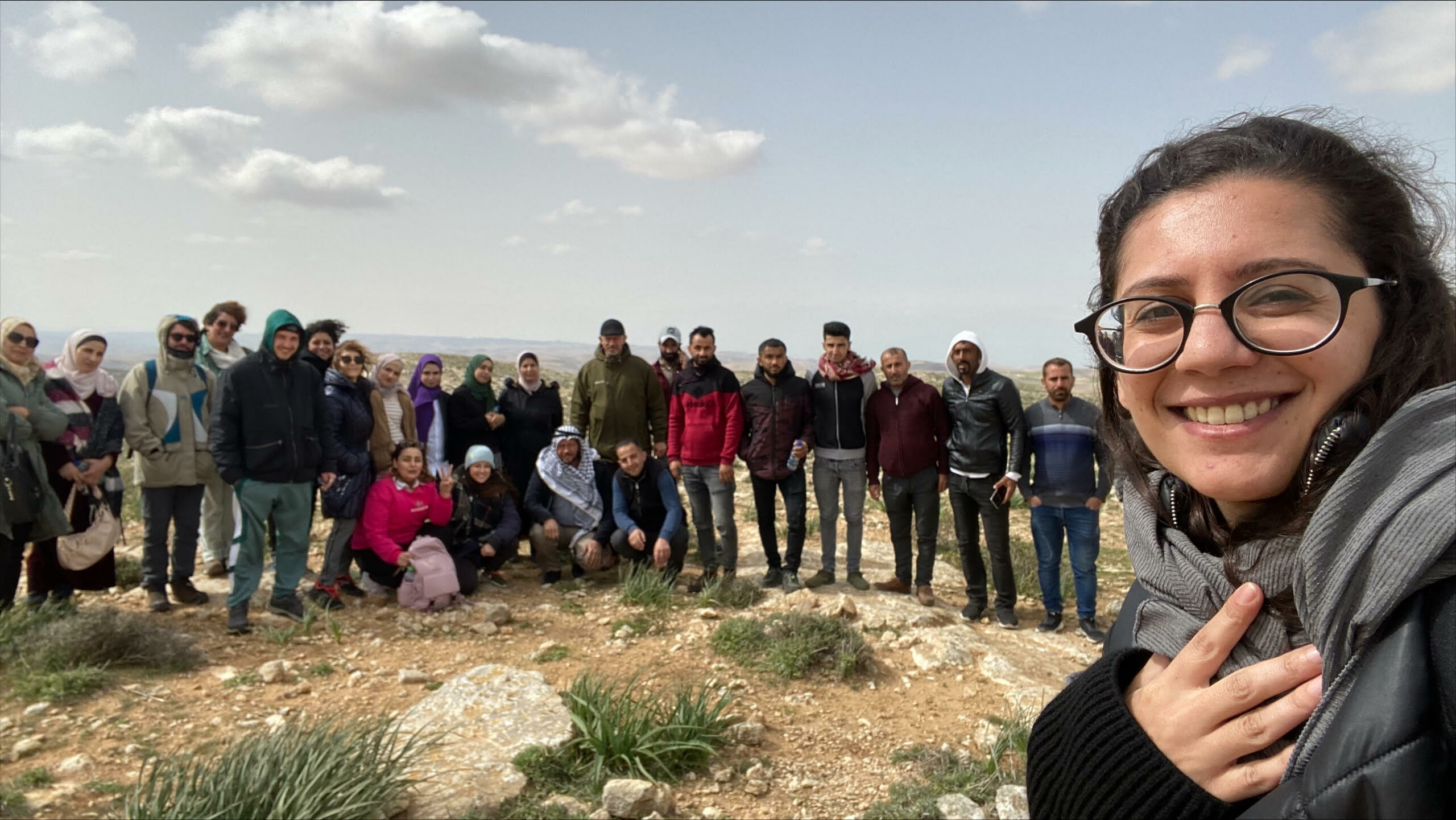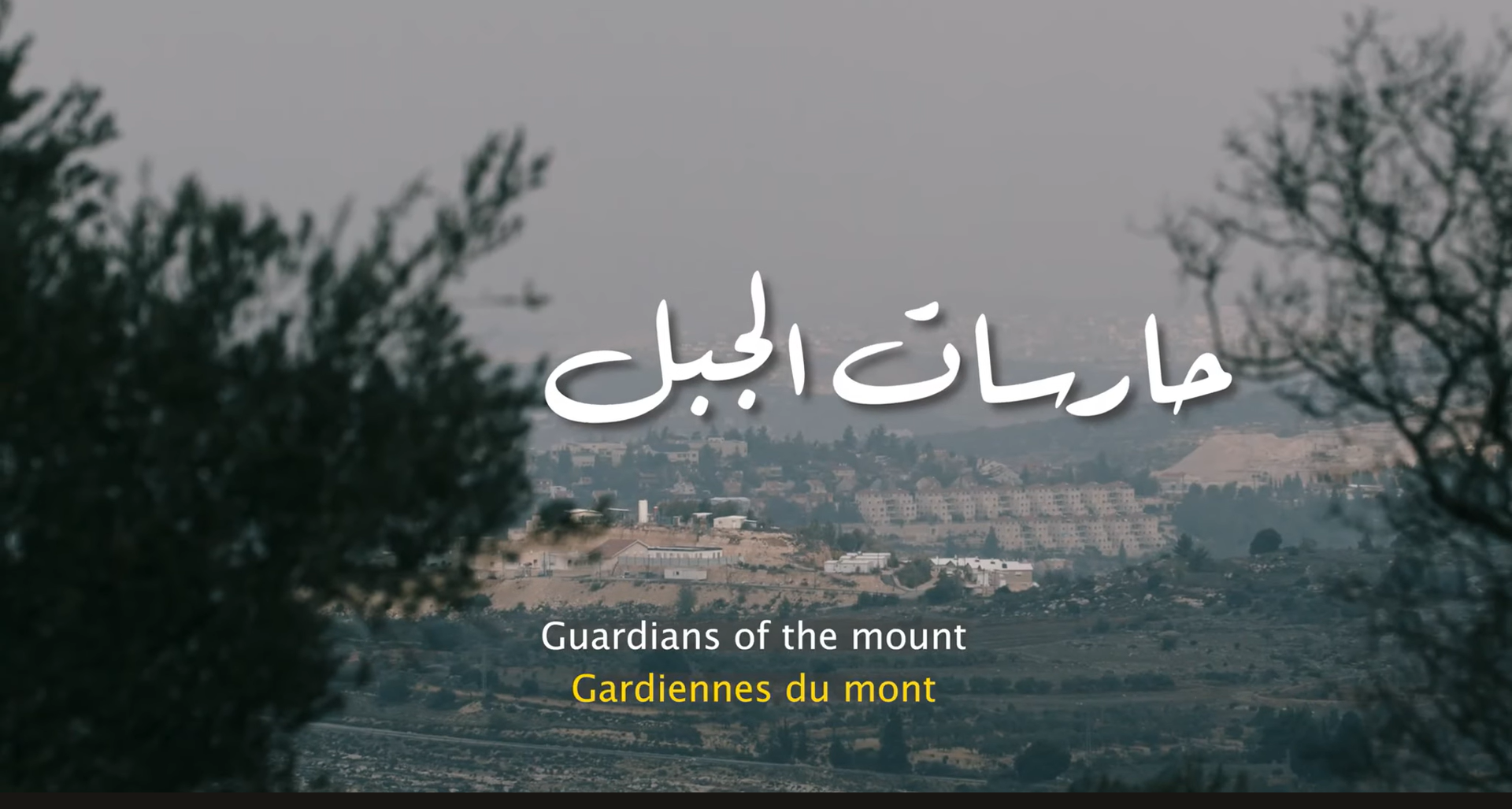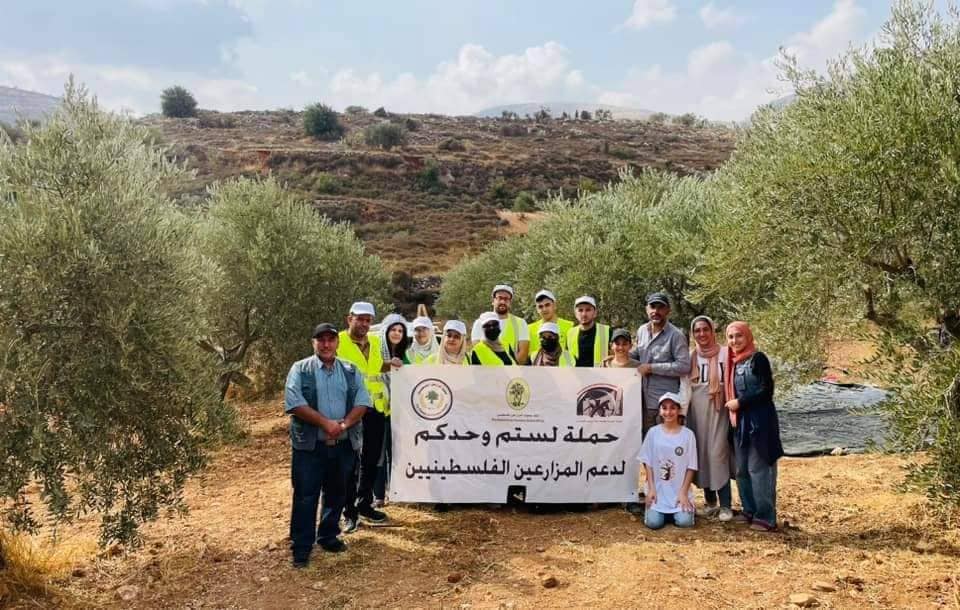Supporting Palestinian youth
During the Unity Uprising, which broke out in the Spring and spread across Historic Palestine, some youth activists joined the daily protests that took place at checkpoints, in the streets and the mountains of Palestine.
During the uprising, we protested not only Israeli intentions to expel hundreds of Palestinians from their homes in Sheikh Jarrah and other parts of Jerusalem, but also decades of a ruthless regime of oppression and dehumanization. We also took part in calling for the nation-wide strike that took place on May 18 to express our outrage at Israeli savage assault on Gaza and escalated violence against protesters in other parts of Historic Palestine.
From the ground to the virtual world, our activists kept the world updated about the resistance of our people on the ground through regular updates published on social media and on the website.
The strengthening of our grassroots mobilizing efforts took place through developing the capacity of youth who affiliate with the Palestinian Youth Forum. This was part of our effort and aim to create a strong youth group that is able to break with Palestinians’ constructed inferiority and marginalization in
Area ‘C’.
We developed their capacity for grassroots mobilizing through the following activities:
1- Trainings and workshops
2- Youth conference
3- Know Your Country tours
1- Training workshops
We held three training workshops that targeted young people from the districts of Ramallah, Nablus, Tulkarm, Jenin, Jerusalem and Hebron. The targeted people are either university students or new graduates. We have focused on these two segments of youth in order to prepare them to take the lead in creating change at the social and political levels and be leaders for those who seek to do the same. The trained youth will do so by recruiting other young people from the universities they affiliate with to engage them more in actions that support their communities.
The training workshops focused on three fields of knowledge/skills: Social accountability, advocacy and campaigning skills, and media engagement skills.
The three training workshops complement each other in order to allow the participants to play a transformative role for the benefit of their communities. Being aware of the importance of social accountability is incomplete without learning how to advocate and spearhead campaigns through which the youth can help their communities; therefore, the advocacy and campaigning training was needed. Understanding very well that any advocacy campaigns needs platforms to ensure their success and visibility, the participants were also exposed to a training on media engagement.
The trainings include:
Social accountability training
This training aimed to build the capacity of 21 participants on social accountability, its tools, and importance of selecting priorities that concern their local communities, how to hold those in power accountable, as well as principles of integrity and transparency. In particular, the training workshop addressed the following issues:
-The concept of social accountability in terms of the participants’ duties to their fellow members of the community, a means to help in good governance, and a tool to improve the situation of the
participants’ communities.
-Tools related to social accountability, including the right to information, whistle blowing, the rights and duties.
-The characteristics of the context that enables citizens engagement.
-The use of social accountability tools for advocacy to make change in the community.
Advocacy and campaigning training
Through this workshop, the 22 participants have learned how to strategize and plan advocacy campaigns that would allow them to achieve the highest impact possible in certain political, social, environmental and economic contexts.
The participants have been particularly equipped with the needed skills to:
– Think in a strategic way about how to set goals and targets for any present/future advocacy campaign.
– Design advocacy campaigns based on research and gathering of facts in order to be able to identify the tactics that will be used to ensure the effectiveness of the advocacy campaign they choose.
– Identify key influencers in the decision-making process nationally and internationally.
– Assess the impact of their future advocacy campaigns by setting milestones and measuring what they achieve against the set milestones.
– Use digital tools of campaigning, how and when to post content on social media, hashtag, live-stream, social listening, reach out to an audience and be aware of the quirks that are peculiar to each social
media platform.
Media engagement skills workshop
Through a workshop on media engagement, we have built the capacity of 22 participants on how to effectively communicate to the public at large. They’ve learned the needed skills to engage with conventional media such as newspaper and television. The participants needed to acquire mass media
skills to facilitate and increase the appearance and visibility of their communities in the media, which is aimed to lead to engagement with their causes and advocacy campaigns they launch to affect change and defend their rights.
Skills acquired were as follows:
-Understanding different types of media and reporting needs of each media (audio visual or print).
– Networking with mass media organizations to widely disseminate the messages they want to convey to the public through their advocacy campaigns.
-Writing press release and opinion articles to interact effectively with media.
– Exercise on how to deal with media interviews
2- Youth Conference
On September 8, we held a conference for the youth. The conference aimed at giving youth more space to brainstorm and think of initiatives through which they employ the skills they have learned, especially as regards to advocacy, campaigning and media. The youth expressed interest in being part of actions to protect the environment from more degradation and shed light on the man-made climate crisis as this is a concern for the various communities they belong to. It is worth mentioning that the grassroots mobilization of youth through the above-mentioned activities also contributes to the development of the international outreach department. The youth will take the lead in mobilizing for different causes at national and international level.
3- Know your country tours
Another space of anti-colonial pedagogy were the ‘Know Your Country’ tours across the West Bank. We hosted three major tours in the villages of Battir, Deir Istya and Wadi Qana. The youth participants met with the locals there, listened to their stories about Israeli practices to uproot them from their lands and their daily resistance and sumoud to maintain a Palestinian presence on the land against all odds.
After hearing different inspiring stories, the participants were left with more determination to take action to support these affected communities. For instance, following the visit to Wadi Qana in the Salfit district, we released a video documenting Israeli plans to force Palestinians from their land through the construction of a waste water pipeline that will run through agricultural land. The video was released in the occasion of the COP26 to draw attention to the intertwinement between Israeli illegal settlement expansion and environmental destruction. Watch the video here.



